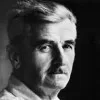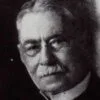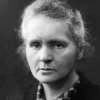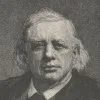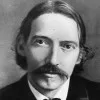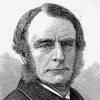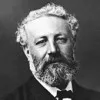The ways of dead people are not our ways. They have a very oblique way of expressing themselves, and often they’ll tell you something that can be interpreted many ways; it gives them a way out while preserving their reputation for infallibility.
S. P. Somtow (b. 1952) Thai-American music composeer, conductor, author [Somtow Papinian Sucharitkul; สมเถา สุจริตกุล; Somthao Sucharitkun]
“Lottery Night,” World Fantasy Convention Program Book (1989-10)
(Source)
Collected in Gardner Dozois, ed., Year's Best Science Fiction 7 (1990) and Somtow, Dragon's Fin Soup (1998).
Quotations about:
spirit
Note not all quotations have been tagged, so Search may find additional quotes on this topic.
If any solace, any joy may fall,
Calvus, to silent sepulchres through tears,
When the lost love regretful we recall
And weep the parted friend of early years,
Then, sure, Quintilia is not wholly sad,
Untimely lost: your love has made her glad.[Si quicquam mutis gratum acceptumve sepulcris
accidere a nostro, Calve, dolore potest,
quo desiderio veteres renovamus amores
atque olim junctas flemus amicitias,
certe non tanto mors immatura dolori est
Quintiliae, quantum gaudet amore tuo.]Catullus (c. 84 BC – c. 54 BC) Latin poet [Gaius Valerius Catullus]
Carmina # 96 [tr. MacNaghten (1925), “On the Death of Quintilia, Wife of Calvus”]
(Source)
(Source (Latin)). Alternate translations:If ever to the dumb, sepulcrhal urn
The tribute of a tear could grateful prove;
What timne each recollected scene we mourn,
Each deed of ancient friendship, and of love:
Less sure, fond youth, must thy Quintilia grieve
That she by death's cold hand untimely fell;
Than joys her parted spirit to perceive
How much her Calvus lov'd her, and how well!
[tr. Nott (1795), # 91 "To Calvus, on Quintilia]Calvus, if any joy from mortal tears
Can touch the feelings of the silent dead;
When dwells regret on loves of former years,
Or weeps o'er friendships that have long been fled,
Oh! then far less will be Quintilia's woe
At early death and fate's severe decree,
Than the pure pleasure she will feel to know
How well, how truly she was loved by thee!
[tr. Lamb (1821), # 90 "To Calvus, on the Death of Quintilia"]Calvus, if those now silent in the tomb
Can feel the touch of pleasure in our tears,
For those we loved, who perished in their bloom,
And the departed friends of former years;
Oh, then, full surely thy Quinctilia's woe,
For the untimely fate that bade ye part,
Will fade before the bliss she feels ot know,
How every dear she is unto thy heart!
[tr. T. Martin (1861), "To Calvus"]Calvus! if from our grief aught can accrue
The silent dead to solace or to cheer,
When fond regret broods o'er old loves anew,
And o'er lost friendships sheds the bitter tear
Oh ! then her grief at death's untimely blow
To thy Quintilia; far, far less must prove
Than the pure joy her soul must feel, to know
Thy true, unchanging, ever-during love.
[tr. Cranstoun (1867), "To Calvus, on teh Death of Quintilia"]If to the silent dead aught sweet or tender ariseth,
Calvus, of our dim grief's common humanity born;
When to a love long cold some pensive pity recalls us,
When for a friend long lost wakes some unhappy regret;
Not so deeply, be sure, Quintilia's early departing
Grieves her, as in thy love dureth a plenary joy.
[tr. Ellis (1871)]If to the dumb deaf tomb can aught or grateful or pleasing
(Calvus!) ever accrue rising from out of our dule,
Wherewith yearning desire renews our loves in the bygone,
And for long friendships lost many a tear must be shed;
Certès, never so much for doom of premature death-day
Must thy Quintilia mourn as she is joyed by thy love.
[tr. Burton (1893) "To Calvus anent Dead Quintilia"]Calvus, if anything pleasing or welcome from our grief can have an effect on silent graves, then with its longing we renew old loves and weep friendships once lost, surely Quintilia does not mourn her premature death as much as she rejoices in your love.
[tr. Smithers (1894)]If living sorrows any boon
Unto the silent grave can give,
When sad remembrances revive
Old loves and friendships fugitive,
She sorrows less she died so soon
Than joys your love is still alive.
[tr. Symons (c. 1900)]If the silent grave can receive any pleasure, or sweetness at all from our grief, Calvus, the grief and regret with which we renew our old loves, and weep for long lost friendships, surely Quintilia feels less sorrow for her too early death, than pleasure from your love.
[tr. Warre Cornish (1904)]If our grief, Calvus, can give any pleasure or consolation to the buried dead, and the yearning with which we re-enkindle old loves, and weep lost friends; then surely Quintilia; must feel less sorrow for her untimely end than joy in your love
[tr. Stuttaford (1912)]If the silent grave can receive any pleasure, or sweetness at all from our grief, Calvus, the grief and regret with which we make our old loves live again, and weep for long-lost friendships, surely Quintilia feels less sorrow for her too early death, than pleasure from your love.
[tr. Warre Cornish (Loeb) (1913)]If into the silent tomb can steal
Some tenderness, some thought devine,
If aught from this life the dead can feel,
Then, Calvus, be this solace thine.
When we mourn old friends with longing heart;
For dear dead loves in anguish cry,
Oh, there, do they feel the hot tears start,
Touched by a love that cannot die?
If this be, Calvus, thy sweet girl wife.
There in the tomb shall less grief know
For her spring time lost, her broken life,
Than joy in thy love that loved her so.
[tr. Stewart (1915)]If yearning grief can pierce the tomb,
Reach silent souls and cheer their gloom,
When, Calvus, we lost loves regret,
And mourn the dear we ne'er forget,
Quintilia'll cease her death to rue,
For joy she's proved your love so true.
[tr. Symons-Jeune (1923), "To Calvus on Quintilia"]If from our anguish to the voiceless tomb
Some meed of pleasure and of joy may come
When we recall the love we felt of yore
And the dear face whom now we see no more,
Then know thy sorrow gives thy wife beneath
A joy surpassing all the pains of death.
[tr. Wright (1926), "To Calvus on the Death of His Wife Quintilia"]If anything can pierce impenetrable earth and echo in the silence
of the grave, my Calvus, it is our sad memory
of those we love. (Our longing for them makes them bloom again,
quickened with love and friendship,
even though they left us long ago, heavy with tears).
Surely, yur Quintilia now no longer cries against powerful death
(who had taken her away from you too soon and she was gone).
Look, she is radiant, fixed in your mind, happy forever.
[tr. Gregory (1931)]If those in their silent graves can receive any pleasure or comfort at all, Calvus, from our lamenting, from that desire which we rekindle former affections and weep for friendships we long ago surrendered, then surely her premature death brings less grief than joy to Quintilia, whom you continue to cherish.
[tr. C. Martin (1979)]If anything from our grief, can reach beyond
the mute grave, Calvus, and be pleasing and welcome,
grief with which, in longing, we revive our lost loves,
and weep for vanished friendships once known,
surely Quintilia’s not so much sad for her early death,
as joyful for your love.
[tr. Kline (2001), "Beyond The Grave: to Gaius Licinius Calvus"]If anything pleasant or welcome, Calvus, can befall the mute sepulchre in consequence of our grief, from the yearning with which we renew our ancient passions and weep for friendships long since cast away, surely it's not so much grief that's felt by Quintilia at her premature death , as joyfulness in your love.
[tr. Green (2005)]If anything pleasing or acceptable to silent sepulchers
is able to be done by our grief, Calvus,
by this longing we renew old loves
and we lament once sent away friendships.
Certainly a premature death is not of such sadness
to Quintilia, so much as she rejoices in your love.
[tr. Wikisource (2018)]If anything dear and welcome can happen in mute graves
Because of our sadness, Calvus,
Because of that longing by which we renew old loves
And by which we weep for friendships formed long ago,
Surely Quintilia isn’t saddened by her untimely death,
But rather, she’s gladdened by your love.
[tr. Benn (2022)]
To make bread or love, to dig in the earth, to feed an animal or cook for a stranger — these activities require no extensive commentary, no lucid theology. All they require is someone willing to bend, reach, chop, stir. Most of these tasks are so full of pleasure that there is no need to complicate things by calling them holy. And yet these are the same activities that change lives, sometimes all at once and sometimes more slowly, the way dripping water changes stone. In a world where faith is often construed as a way of thinking, bodily practices remind the willing that faith is a way of life,
Barbara Brown Taylor (b. 1951) American minister, academic, author
An Altar in the World, Introduction (2009)
(Source)
What is saving my life now is the conviction that there is no spiritual treasure to be found apart from the bodily experiences of human life on earth. My life depends on engaging the most ordinary physical activities with the most exquisite attention I can give them. My life depends on ignoring all touted distinctions between the secular and the sacred, the physical and the spiritual, the body and the soul. What is saving my life now is becoming more fully human, trusting that there is no way to God apart from real life in the real world.
Barbara Brown Taylor (b. 1951) American minister, academic, author
An Altar in the World, Introduction (2009)
(Source)
Her mind lives tidily, apart
From cold and noise and pain,
And bolts the door against her heart,
Out wailing in the rain.
REBECCA: A child’s spirit is like a child, you cannot catch it by running after it; you must stand still, and, for love, it will soon itself come back.
I can remember how when I was young I believed death to be a phenomenon of the body; now I know it to be merely a function of the mind — and that of the minds who suffer the bereavement. The nihilists say it is the end; the fundamentalists, the beginning; when in reality it is no more than a single tenant or family moving out of a tenement or a town.
Youth is not a time of life; it is a state of mind; it is not a matter of rosy cheeks, red lips and supple knees; it is a matter of the will, a quality of the imagination, a vigor of the emotions; it is the freshness of the deep springs of life.
Youth means a temperamental predominance of courage over timidity of the appetite, for adventure over the love of ease. This often exists in a man of sixty more than a boy of twenty. Nobody grows old merely by a number of years. We grow old by deserting our ideals.
Years may wrinkle the skin, but to give up enthusiasm wrinkles the soul. Worry, fear, self-distrust bows the heart and turns the spirit back to dust.
Whether sixty or sixteen, there is in every human being’s heart the lure of wonder, the unfailing child-like appetite of what’s next, and the joy of the game of living.
When the aerials are down, and your spirit is covered with snows of cynicism and the ice of pessimism, then you are grown old, even at twenty, but as long as your aerials are up, to catch the waves of optimism, there is hope you may die young at eighty.
Samuel Ullman (1840-1924) German-American businessman, poet, humanitarian, religious leader
“Youth” (1918)
(Source)
This poem was a favorite of Douglas MacArthur, who had a copy hung in his office in Tokyo, and was responsible for much of the author's subsequent fame in Japan.
Still, what I want in my life
is to be willing
to be dazzled —
to cast aside the weight of facts
and maybe even
to float a little
above this difficult world.
I am among those who think that science has great beauty. A scientist in his laboratory is not only a technician: he is also a child placed before natural phenomena which impress him like a fairy tale. We should not allow it to be believed that all scientific progress can be reduced to mechanisms, machines, gearings, even though such machinery also has its beauty.
Marie Curie (1867-1934) Polish-French physicist and chemist [b. Maria Salomea Skłodowska]
“The Future of Culture [L’Avenir de la Culture]” conference, Madrid (1933-05-03/07)
(Source)
One of Curie's last public addresses. As quoted in Eve Curie Labouisse, Madame Curie: A Biography, ch. 24 (1937) [tr. Sheean (1938)].
Alternate translation:I believe that science has great beauty. A scientist int he laboratory is not a mere technician; he is also a child confronting natural phenomena that impress him as though they were fairy tales. We should not allow it to believed that all scientific progress can be reduced to mechanisms, machines, and gearings, even though such machine also has beauty.
[Source]
An intelligent man is lost if he does not add strength of character to his intelligence.
[Un homme d’esprit est perdu, s’il ne joint pas à l’esprit l’énergie de caractère.]
Nicolas Chamfort (1741-1794) French writer, epigrammist (b. Nicolas-Sébastien Roch)
Products of Perfected Civilization [Produits de la Civilisation Perfectionée], Part 1 “Maxims and Thoughts [Maximes et Pensées],” ch. 4, ¶ 277 (1795) [tr. Mathers (1926)]
(Source)
(Source (French)). Alternate translations:A person of intellect, without energy added to it, is a failure.
[Source (1893)]A man of wit is lost, if to his wit he does not join energy of character.
[tr. Hutchinson (1902)]A man of intelligence is lost if his intelligence is not combined with energy of character.
[tr. Merwin (1969)]A man of intellect is lost if he does not ally strength of mind to strength of character.
[tr. Pearson (1973)]Any intelligent man who lacks character is lost.
[tr. Parmée (2003), ¶ 173]A man with spirit is lost if he doesn't add to his intelligence an energetic character.
[tr. Sinicalchi]
Therefore, rise. Force your breath, restore it
By that spirit which wins in every battle it fights,
Unless the beaten body says, “no more!”[E però leva sù; vinci l’ambascia
l’animo che vince ogne battaglia,
col suo grave corpo non s’accascia.]Dante Alighieri (1265-1321) Italian poet
The Divine Comedy [Divina Commedia], Book 1 “Inferno,” Canto 24, l. 52ff (24.52-54) [Virgil] (1309) [tr. Raffel (2010)]
(Source)
(Source (Italian)). Alternate translations:Therefore rise up; your breathing short o'ercome
With Courage, for it ev'ry battle wins;
Unless your heavy limbs submit to sloth.
[tr. Rogers (1782)]Arise!-- It ill befits the mounting mind
With mortal cares debas'd, to lag behind.
[tr. Boyd (1802)]Thou therefore rise: vanish thy weariness
By the mind’s effort, in each struggle form’d
To vanquish, if she suffer not the weight
Of her corporeal frame to crush her down.
[tr. Cary (1814)]Up then; o'ercome thy breathlessness by mind;
To win the battle mind shall never fail.
If by her own dull body's weight declined
She faint not.
[tr. Dayman (1843)]And therefore rise! conquer thy panting with the soul, that conquers every battle, if with its heavy body it sinks not down.
[tr. Carlyle (1849)]Then rouse thyself and conquer thy fatigue,
With mind victorious in every battle,
Unless the dull frame subdue its mettle.
[tr. Bannerman (1850)]Up, up, then, up! conquer thy suff'ring breath,
That courage rouse which ev'ry battle wins,
If not kept down by the too-heavy flesh.
[tr. Johnston (1867)]And therefore raise thee up, o'ercome the anguish
With spirit that o'ercometh every battle,
If with its heavy body it sink not.
[tr. Longfellow (1867)]And therefore lift up, conquer the task with the mind that wins every battle, if with its heavy jody it throw not itself down.
[tr. Butler (1885)]Therefore arise, thy weakness stem with worth
Of soul, that of all battles wins the prime,
Unless 'tis borne down by the body's dearth.
[tr. Minchin (1885)]And therefore rise up, conquer the exhaustion with the spirit that conquers every battle, if by its heavy body it be not dragged down.
[tr. Norton (1892)]Wherefore bestir thyself; conquer thy weariness with the courageous soul that conquereth in every fight, if it so be that it is not dragged down by the body's weight.
[tr. Sullivan (1893)]And so do thou rise up, conquer the shortness
Of breath with spirit that wins every battle.
If with its heavy body it does not totter.
[tr. Griffith (1908)]Rise, therefore, conquer thy panting with the soul, which conquers in every battle if it sink not with its body's weight.
[tr. Sinclair (1939)]And therefore rise! Quell now thy panting breast
With the soul's strength that winneth every fight,
So it be not by the body's weight deprest.
[tr. Binyon (1943)]Rise up; control thy panting breath, and call
The soul to aid, that wins in every fight,
Save the dull flesh should drag it to a fall.
[tr. Sayers (1949)]Now, therefore, rise. Control your breath, and call
upon the strength of soul that wins all battles
unless it sink in the gross body's fall.
[tr. Ciardi (1954)]Rise, therefore; conquer your panting with the soul that vvins every battle, if with its heavy body it sinks not down.
[tr. Singleton (1970)]Stand up! Dominate this weariness of yours
with the strength of soul that wins in every battle
if it does not sink beneath the body's weight.
[tr. Musa (1971)]Therefore, get up; defeat your breathlessness
with spirit that can win all battles if
the body’s heaviness does not deter it.
[tr. Mandelbaum (1980)]Therefore get up: control your breathlessness
By force of mind, which wins in every battle,
If with its heavy body it does not sink.
[tr. Sisson (1981)]So stand
And overcome your panting -- with the soul
Which wins all battles if it does not despond
Under its heavy body's weight.
[tr. Pinsky (1994), l. 52ff]And therefore stand up; conquer your panting with the spirit that conquers in every battle, if it does not let the heavy body crush it down.
[tr. Durling (1996)]So rise, and overcome weariness with spirit, that wins every battle, if it does not lie down with the gross body.
[tr. Kline (2002)]Get up! breathe with the soul, for it is brave
in every battle, and will always win,
unless the heavy body be its grave.
[tr. Carson (2002)]So upwards! On! And vanquish labored breath!
In any battle mind-power will prevail,
unless the weight of body loads it down.
[tr. Kirkpatrick (2006)]Get to your feet! Conquer this laboring breath
with strength of mind, which wins the battle
if not dragged down by body's weight.
[tr. Hollander/Hollander (2007)]Therefore arise, with your soul’s flag unfurled
Above your fear, for so your soul prevails
In every battle if the body's weight
Can't sink it.
[tr. James (2013)]
Sometimes it is good for us to have troubles and hardships, for they often call us back to our own hearts. Once there, we know ourselves to be strangers in this world, and we know that we may not believe in anything that it has to offer.
[Bonum nobis est, quod aliquando habeamus aliquas gravitates et contrarietates, quia sæpe hominem ad cor revocant, quatenus se in exilio esse cognoscat, nec spem suam in aliqua mundi re ponat.]
Thomas à Kempis (c. 1380-1471) German-Dutch priest, author
The Imitation of Christ [De Imitatione Christi], Book 1, ch. 12, v. 1 (1.12.1) (c. 1418-27) [tr. Creasy (1989)]
(Source)
See Psalm 119:71.
(Source (Latin)). Alternate translations:It is good that we have sometime griefs and adversities, for they drive a man to behold himself, and to see that he is here but as in an exile, and be learned thereby to know that he ought not to put his trust in any worldly thing.
[tr. Whitford/Raynal (1530/1871)]It is good that we sometimes have griefs and adversities, for they drive a man to behold himself and to see that he is but here as in exile, and to learn thereby that he ought not put his trust in any worldly thing.
[tr. Whitford/Gardiner (1530/1955)]It is good for us sometimes to suffer affliction and contradiction, because they oftentimes call a man home unto himselfe. They make a man to know that he liveth here but in banishment, and that he must not trust to any thing in this world.
[tr. Page (1639), x.12.1-2]It is good for me that I have been in Trouble, says David. Nor is it David's Case alone, for many Men have reason to bless that Providence which sends Crosses and Calamities upon them. These bring Man's Thoughts home, put him upon Reflection, and help him to understand himself and his Condition. They shew him, that he is in a State of Exile and Pilgrimage, and forbid him to set up his Hope and Rest, in a strange Country, where he is no better than a Sojourner.
[tr. Stanhope (1696; 1706 ed.)]It is good for man to suffer the adversity of this earthly life; for it brings him back to the sacred retirement of the heart, where only he finds, that he is an exile from his native home, and ought not to place his trust in any worldly enjoyment.
[tr. Payne (1803)]It is good that we have sometimes some troubles and crosses; for they often make a man enter into himself, and consider that he is here in banishment, and ought not to place his trust in any worldly thing.
[ed. Parker (1841)]It is good for us that we sometimes suffer contrarieties and vexations; for they call a man back to the retirement of his heart, where only he finds, that, as he is an exile from his native home, he ought not to place his trust in any worldly enjoyment.
[tr. Dibdin (1851)]It is good for us to have sometimes troubles and adversities, for they make a man enter into himself, that he may know that he is in exile, and may not place his hopes in anything of the world.
[ed. Bagster (1860)]It is good for us that we sometimes have sorrows and adversities, for they often make a man lay to heart that he is only a stranger and sojourner, and may not put his trust in any worldly thing.
[tr. Benham (1874)]It is good that we have sometimes troubles and crosses; for they often make a man enter into himself, and consider that he is here in banishment, and ought not to place his trust in any worldly thing.
[tr. Anon. (1901)]It is good for us to have trials and troubles at times, for they often remind us that we are on probation and ought not to hope in any worldly thing.
[tr. Croft/Bolton (1940)]It is good for us at times to have some burdens and adversities, for they often call a man back to his heart, that he may recognise himself to be in exile, and not fix his hope on anything earthly.
[tr. Daplyn (1952)]It is good for us to encounter troubles and adversities from time to time, for trouble often compels a man to search his own heart. It reminds him that he is an exile here, and that he can put his trust in nothing in this world.
[tr. Sherley-Price (1952)]It's good for you to go through difficult times now and again, and to have your will thwarted; the effect is often to make a man think -- make him realize that he is living in exile, and it is no use relying upon any earthly support.
[tr. Knox-Oakley (1959)]It is a good thing that we have to face difficulties and opposition from time to time, because this brings us back to ourselves; it makes us realize that we are exiles and cannot pin our hopes on anything in this world.
[tr. Knott (1962)]It is good for us now and then to experience difficulties and adversity; for they make man realize again that he is an exile and should not put his hopes on any worldly thing.
[tr. Rooney (1979)]
A good conscience is to the Soul what health is to the body; it preserves constant ease and serenity within us; and more than countervails all the calamities and afflictions which can befall us from without.
Joseph Addison (1672-1719) English essayist, poet, statesman
Essay (1713-08-15), The Guardian, No. 135
(Source)
They tell me thou art rich, my country: gold
In glittering flood has poured into thy chest;
Thy flocks and herds increase, thy barns are pressed
With harvest, and thy stores can hardly hold
Their merchandise; unending trains are rolled
Along thy network rails of East and West;
Thy factories and forges never rest;
Thou art enriched in all things bought and sold!But dost thou prosper? Better news I crave.
O dearest country, is it well with thee
Indeed, and is thy soul in health?
A nobler people, hearts more wisely brave,
And thoughts that lift men up and make them free, —
These are prosperity and vital wealth!Henry Van Dyke (1852-1933) American clergyman and writer
“America’s Prosperity” (1 Oct 1916), The Red Flower: Poems Written in War Time (1917)
(Source)
I believe that man will not merely endure: he will prevail. He is immortal, not because he alone among creatures has an inexhaustible voice, but because he has a soul, a spirit capable of compassion and sacrifice and endurance. The poet’s, the writer’s, duty is to write about these things. It is his privilege to help man endure by lifting his heart, by reminding him of the courage and honor and hope and pride and compassion and pity and sacrifice which have been the glory of his past. The poet’s voice need not merely be the record of man, it can be one of the props, the pillars to help him endure and prevail.
William Faulkner (1897-1962) American novelist
Speech, Nobel Banquet, Stockholm (1950-12-10)
(Source)
Faulkner received the 1949 Nobel Prize for Literature.
You are not a human being having a spiritual experience. You are a spiritual being having a human experience.
Wayne Dyer (1940-2015) American self-help author, motivational speaker
You’ll See It When You Believe It: The Way to Your Personal Transformation, ch. 2, epigraph (1989)
(Source)
A variant of the phrase is also included in the Introduction to the book: "That you are not a human being having a spiritual experience, but rather a spiritual being having a human experience."
Dyer originally used a variation of this ("Can you see yourselves as spiritual beings having a human experience, rather than human beings who may be having a spiritual experience?") the previous year in "A Letter to the Next Generation," an advertisement by Volkswagen.
Also attributed, without citation to Pierre Teilhard de Chardin (incorrectly) and Georges I. Gurdjieff.
More discussion: You Are Not a Human Being Having a Spiritual Experience. You Are a Spiritual Being Having a Human Experience – Quote Investigator.
Next t’ a circus ther haint nothin’ that packs up an’ tears out any quicker’n th’ Christmus spirit.
[Next to a circus, there ain’t nothing that packs up and tears out any quicker than the Christmas spirit.]
Frank McKinney "Kin" Hubbard (1868-1930) American caricaturist and humorist
Abe Martin’s Back Country Sayings, ch. 7 (1917)
(Source)
Often misquoted as "tears out faster than".
Poor child, most tried of men, Persephone, daughter of Zeus, is not deceiving you in any way; this is the law that rules all mortals at their death. For just as soon as life has left the white bones, and the sinew no longer hold together bones and flesh, when the erupting force of blazing fire undoes the body, then the spirit wanders: much like a dream, it flits away and hovers, now here, now there.
[‘ὤ μοι, τέκνον ἐμόν, περὶ πάντων κάμμορε φωτῶν,
οὔ τί σε Περσεφόνεια Διὸς θυγάτηρ ἀπαφίσκει,
ἀλλ᾽ αὕτη δίκη ἐστὶ βροτῶν, ὅτε τίς κε θάνῃσιν:
οὐ γὰρ ἔτι σάρκας τε καὶ ὀστέα ἶνες ἔχουσιν,
ἀλλὰ τὰ μέν τε πυρὸς κρατερὸν μένος αἰθομένοιο
δαμνᾷ, ἐπεί κε πρῶτα λίπῃ λεύκ᾽ ὀστέα θυμός,
ψυχὴ δ᾽ ἠύτ᾽ ὄνειρος ἀποπταμένη πεπότηται.]Homer (fl. 7th-8th C. BC) Greek author
The Odyssey [Ὀδύσσεια], Book 11, l. 216ff (11.216) (c. 700 BC) [tr. Mandelbaum (1990)]
(Source)
Anticleia, Odysseus' mother, responding to him when he's unable to embrace her shade in the Underworld. (Source (Greek)). Alternate translations:O son, she answer’d, of the race of men
The most unhappy, Our most equal Queen
Will mock no solid arms with empty shade,
Nor suffer empty shades again t’ invade
Flesh, bones, and nerves; nor will defraud the fire
Of his last dues, that, soon as spirits expire
And leave the white bone, are his native right,
When, like a dream, the soul assumes her flight.
The light then of the living with most haste,
O son, contend to.
[tr. Chapman (1616)]Oh no, quoth she, my son, she’d no intent
T’ abuse you. ’Tis the nature of the dead.
We are no longer sinews, flesh, and bones,
We are substances incorporeal,
All that ’s consumed i’ th’ fun’ral fire; when once
That’s done, it in itself stands several;
Flies like a dream.
[tr. Hobbes (1675), l. 203ff]O son of woe, the pensive shade rejoin'd;
O most inured to grief of all mankind!
"'Tis not the queen of hell who thee deceives;
All, all are such, when life the body leaves:
No more the substance of the man remains,
Nor bounds the blood along the purple veins:
These the funereal flames in atoms bear,
To wander with the wind in empty air:
While the impassive soul reluctant flies,
Like a vain dream, to these infernal skies.
[tr. Pope (1725)]Ah, son! thou most afflicted of mankind!
On thee, Jove’s daughter, Proserpine, obtrudes
No airy semblance vain; but such the state
And nature is of mortals once deceased.
For they nor muscle have, nor flesh, nor bone;
All those (the spirit from the body once
Divorced) the violence of fire consumes,
And, like a dream, the soul flies swift away.
[tr. Cowper (1792), l. 258ff]O my child,
'Tis not Persephone deludes thee here.
This is their portion who, from light exiled,
Dying descend into these regions drear,
Sinewless, fleshless, boneless. On the bier
All substance was burnt out by force of fie,
When first the spirit, her cold flight to steer,
Left the white bones , and fluttering from the pyre
Straight to these shadowy realms did like a dream retire.
[tr. Worsley (1861), st. 32]Alas! my child! thou most ill-starred of all men!
'Tis not Persephone--Zeus' daughter, fools thee!
But this is the way with mortals, when they're dead.
Their powers no more are clothed with flesh and bones;
But these the mighty strength of the blazing fire
Consumes, when once life's left the calcined bones,
And the soul, like a dream, on wings hath fled away.
[tr. Bigge-Wither (1869), l. 217ff]Ah me, my child, of all men most ill-fated, Persephone, the daughter of Zeus, doth in no wise deceive thee, but even on this wise it is with mortals when they die. For the sinews no more bind together the flesh and the bones, but the great force of burning fire abolishes these, so soon as the life hath left the white bones, and the spirit like a dream flies forth and hovers near.
[tr. Butcher/Lang (1879)]O me, my child, my darling, most hapless man of men,
Persephone, daughter of Zeus, beguileth thee nought hereby,
But this is the lot of mortals when at last they come to die;
For no longer then the sinews hold together flesh and bone,
But they by the might of the fire bright-flaming are undone,
When first from the white bones wendeth the soul and living breath,
And the soul as a dream forth flieth and flitting hovereth.
[tr. Morris (1887)]Ah, my own child, beyond all men ill-fated! In no wise is Persephone, daughter of Zeus, beguiling you, but this is the way of mortals when they die: the sinews no longer hold the flesh and bones together; for these the strong force of the flaming fire destroys, when once the life leaves the white bones, and like a dream the spirit flies away.
[tr. Palmer (1891)]My son, she answered, most ill-fated of all mankind, it is not Proserpine that is beguiling you, but all people are like this when they are dead. The sinews no longer hold the flesh and bones together; these perish in the fierceness of consuming fire as soon as life has left the body, and the soul flits away as though it were a dream. [tr. Butler (1898)]But this is the appointed way with mortals when one dies. For the sinews no longer hold the flesh and the bones together, but the strong might of blazing fire destroys these, as soon as the life leaves the white bones, and the spirit, like a dream, flits away, and hovers to and fro.
[tr. Murray (1919)]Alas my hapless child! Here is no mockery from Persephone, daughter of Zeus: it is the common judgment upon all mortals when they die. Then the nerves will no more bind flesh and frame into one body, for the terrible intensity of the searing fire subdues them till they vanish, as the quickening spirit vanishes from the white bones and the soul flies out, to hover like a dream.
[tr. Lawrence (1932)]My child, my child! came her reply. What man on earth has more to bear than you? This is no trick played on you by Persephone, Daughter of Zeus. You are only witnessing here the law of our mortal nature, when we come to die. We no longer have sinews keeping the bones and flesh together, but once the life-force has departed from our white bones, all is consumed by the fierce heat of the blazing fire, and the soul slips away like a dream and flutters on the air.
[tr. Rieu (1946)]O my child -- alas,
most sorely tried of men -- great Zeus' daughter,
Persephone, knits no illusion for you.
All mortals meet this judgment when they die.
No flesh and bone are here, none bound by sinew,
since the bright-hearted pyre consumed them down --
the white bones long exanimate -- to ash;
dreamlike the soul flies, insubstantial.
[tr. Fitzgerald (1961)]Oh my child, ill-fated beyond all other mortals, this is not Persephone, daughter of Zeus, beguiling you, but it is only what happens, when they die, to all mortals. The sinews no longer hold the flesh and the bones together. The queens of the past and once the spirit has left the white bones, all the rest of the body is made subject to the fire's strong fury, but the soul flitters out like a dream and flies away.
[tr. Lattimore (1965)]My son, my son, the unluckiest man alive!
This is no deception sent by Queen Persephone,
this is just the way of mortals when we die.
Sinews no longer bind the flesh and bones together --
the fire in all its fury burns the body down to ashes
once life slips from the white bones, and the spirit,
rustling, flitters away ... flown like a dream.
[tr. Fagles (1996)]O my child, most ill-fated of men,
It is not that Persephone is deceiving you.
This is the way it is with mortals.
When we die, the sinews no longer hold
Flesh and bones together. The fire destroys these
As soon as the spirit leaves the white bones,
And the ghost flutters off and is gone like a dream.
[tr. Lombardo (2000)]Alas, my child, came my revered mother's reply, ill-fated above all men! This is no trick played on you by Persephone, Daughter of Zeus. It is the law of our mortal nature, when we come to die. We no longer have sinews keeping the bones and flesh together; once life has departed from our white bones, all is consumed by the fierce heat of the blazing fire, and the soul slips away like a dream and goes fluttering on its ways.
[tr. DCH Rieu (2002)]Ah my child, ill-fated beyond all men! It is not that Persephone, daughter of Zeus, is deceiving you, but it is the law that touches all mortal beings when they die: no longer do they have sinews that bind flesh and bone together, for as soon as the spirit departs from their white bones, the fierce heat of the blazing fire destroys everything, and their shade flies off, fluttering like a dream.
[tr. Verity (2016)]Oh, my child! You are the most unlucky man alive. Persephone is not deceiving you. Thsi is the rule for mortals when we die. Our muscles cease to hold the flesh and skeleton together; as soon as life departs our white bones, the force of blazing fire destroys the corpse. The spirit flies away and soon is gone, just like a dream.
[tr. Wilson (2017)]Alas, my child, ill-fated beyond all other mortals, Persephonē, daughter of Zeus, is in no way beguiling you. No, this is the fixed law for mortals, when anyone dies: The sinews no longer keep flesh and bones together, they're destroyed by the powerful force of blazing fire as soon as the spirit departs from the white bones and the soul, like a dream, flies fluttering off, is gone.
[tr. Green (2018)]My child, of all men most unfortunate,
no, dread Persephone, daughter of Zeus,
is not deceiving you. Once mortals die,
this is what’s ordained for them. Their sinews
no longer hold the flesh and bone together.
The mighty power of a blazing fire
destroys them, once our spirit flies from us,
from our white bones. And then it slips away,
and, like a dream, it flutters to and fro.
[tr. Johnston (2019), l. 268ff]
When great causes are on the move in the world, stirring all men’s souls, drawing them from their firesides, casting aside comfort, wealth, and the pursuit of happiness in response to impulses at once awe-striking and irresistible, we learn that we are spirits, not animals, and that something is going on in space and time, and beyond space and time, which, whether we like it or not, spells duty.
Winston Churchill (1874-1965) British statesman and author
BBC Radio broadcast (16 Jun 1941)
(Source)
First published in the Imperial Review (28 Jun 1941).
But if physical death is the price that a man must pay to free his children and his white brethren from a permanent death of the spirit, then nothing could be more redemptive. This is the type of soul force that I am convinced will triumph over the physical force of the oppressor.
Martin Luther King, Jr. (1929-1968) American clergyman, civil rights leader, social activist, preacher
“The Rising Tide of Racial Consciousness,” Speech, National Urban League, New York (6 Sep 1960)
(Source)
The way to avoid evil is not by maiming our passions, but by compelling them to yield their vigor to our moral nature. Thus they become, as in the ancient fable, the harnessed steeds which bear the chariot of the sun.
Stone walls do not a prison make,
Nor iron bars a cage.
So give me the political economist, the sanitary reformer, the engineer; and take your saints and virgins, relics and miracles. The spinning-jenny and the railroad, Cunard’s liners and the electric telegraph, are to me, if not to you, signs that we are, on some points at least, in harmony with the universe; that there is a mighty spirit working among us, who cannot be your anarchic and destroying Devil, and therefore may be the Ordering and Creating God.
Charles Kingsley (1819-1875) English clergyman, historian, essayist, novelist (pseud. "Parson Lot")
Yeast: A Problem, ch. 5 (1848)
(Source)
An able man shows his Spirit by gentle words and resolute actions.
Your beauty should not come from outward adornment, such as elaborate hairstyles and the wearing of gold jewelry or fine clothes. Rather, it should be that of your inner self, the unfading beauty of a gentle and quiet spirit, which is of great worth in God’s sight.
[ὧν ἔστω οὐχ ὁ ἔξωθεν ἐμπλοκῆς τριχῶν καὶ περιθέσεως χρυσίων ἢ ἐνδύσεως ἱματίων κόσμος, ἀλλ’ ὁ κρυπτὸς τῆς καρδίας ἄνθρωπος ἐν τῷ ἀφθάρτῳ τοῦ πραέως καὶ ἡσυχίου πνεύματος ὅ ἐστιν ἐνώπιον τοῦ Θεοῦ πολυτελές.]
The Bible (The New Testament) (AD 1st - 2nd C) Christian sacred scripture
1 Peter 3: 3-4 [NIV (2011 ed.)]
(Source)
(Source (Greek)). Alternate translations:Whose adorning let it not be that outward adorning of plaiting the hair, and of wearing of gold, or of putting on of apparel;
But let it be the hidden man of the heart, in that which is not corruptible, even the ornament of a meek and quiet spirit, which is in the sight of God of great price.
[KJV (1611)]Do not dress up for show: doing up your hair, wearing gold bracelets and fine clothes; all this should be inside, in a person’s heart, imperishable: the ornament of a sweet and gentle disposition -- this is what is precious in the sight of God.
[JB (1966)]You should not use outward aids to make yourselves beautiful, such as the way you fix your hair, or the jewelry you put on, or the dresses you wear. Instead, your beauty should consist of your true inner self, the ageless beauty of a gentle and quiet spirit, which is of the greatest value in God's sight.
[GNT (1976)]Your adornment should be not an exterior one, consisting of braided hair or gold jewelry or fine clothing, but the interior disposition of the heart, consisting in the imperishable quality of a gentle and peaceful spirit, so precious in the sight of God.
[NJB (1985)]Don’t try to make yourselves beautiful on the outside, with stylish hair or by wearing gold jewelry or fine clothes. Instead, make yourselves beautiful on the inside, in your hearts, with the enduring quality of a gentle, peaceful spirit. This type of beauty is very precious in God’s eyes.
[CEB (2011)]Do not adorn yourselves outwardly by braiding your hair, and by wearing gold ornaments or fine clothing; rather, let your adornment be the inner self with the lasting beauty of a gentle and quiet spirit, which is very precious in God’s sight.
[NRSV (2021 ed.)]
The means by which we live have outdistanced the ends for which we live. Our scientific power has outrun our spiritual power. We have guided missiles and misguided men.
Martin Luther King, Jr. (1929-1968) American clergyman, civil rights leader, social activist, preacher
Strength to Love, ch. 7 “The Man Who Was a Fool,” sec. 3 (1963)
(Source)
It behooves all men who wish to excel the other animals to strive with might and main not to pass through life unheralded, like the beasts, which Nature has fashioned groveling and slaves to the belly. All our power, on the contrary, lies in both mind and body; we employ the mind to rule, the body rather to serve; the one we have in common with the Gods, the other with the brutes. Therefore I find it becoming, in seeking renown, that we should employ the resources of the intellect rather than those of brute strength, to the end that, since the span of life which we enjoy is short, we may make the memory of our lives as long as possible.
[Omnis homines qui sese student praestare ceteris animalibus summa ope niti decet ne vitam silentio transeant veluti pecora, quae natura prona atque ventri oboedientia finxit. Sed nostra omnis vis in animo et corpore sita est; animi imperio, corporis servitio magis utimur; alterum nobis cum dis, alterum cum beluis commune est. Quo mihi rectius videtur ingeni quam virium opibus gloriam quaerere et, quoniam vita ipsa qua fruimur brevis est, memoriam nostri quam maxume longam efficere.]
Sallust (c. 86-35 BC) Roman historian and politician [Gaius Sallustius Crispus]
Bellum Catilinae [The War of Catiline; The Conspiracy of Catiline], ch. 1, sent. 1-3 [tr. Rolfe (1931)]
(Source)
Original Latin. Alt. trans.:"To maintain the dignity of human nature is the true ambition of man; and to that end it becomes the duty of all, who aspire to distinguish themselves from the race of inferior animals, to exert their most strenuous efforts, lest they pass their days in silence, like the herds of the field, formed by nature prone to the earth, and governed altogether by the incitements of appetite. Man is composed of mind and body, and in the exercise of both consists the energy of his nature. The mind is the directing principle; the body is subservient. The former we participate with the gods; the latter we hold in common with the brute creation. Hence the fame acquired by our intellectual powers has ever appeared to me the truest glory, far superior to all that can be achieved by mere corporeal vigor; and since the life we enjoy is frail and transitory, it should be the endeavour of every man to extend his fame, and leave a lasting memorial of his existence." [tr. Murphy (1807)]"Men who would act up to the dignity of their nature ought not to pass their lives in obscurity, like the beasts of the field, formed with bodies prone to the earth, and under necessary subjection to their appetites. Now, our faculties are twofold; those of the soul, and those of the body: the soul was designed for sovereign command, the body for subjection: the former we enjoy in common with the gods, the latter with the brute creation. So that to me it appears more agreeable to nature to pursue glory by the abilities of the mind than those of the body; and as our lives are but of short duration, it should be our study to render our memory immortal." [tr. Rose (1831)]"It becomes all men, who are anxious that they should excel other animals, to strive with their utmost might that they may not pass their life in silence like cattle, which nature has formed with their faces downwards, and slaves to their belly. But all our vigour is placed in the mind and in the body. We for the most part make use of the government of the mind, the submission of the body. The one we have in common with the gods, and the other with brutes. Wherefore it appears to me more proper to seek for glory by the abilities of the mind rather than by those of mere force; and since that life which we enjoy is short, to make the memory of ourselves as lasting as possible." [Source (1841)]"It becomes all men, who desire to excel other animals, to strive, to the utmost of their power, not to pass through life in obscurity, like the beasts of the field, which nature has formed groveling and subservient to appetite. All our power is situated in the mind and in the body. Of the mind we rather employ the government; of the body, the service. The one is common to us with the gods; the other with the brutes. It appears to me, therefore, more reasonable to pursue glory by means of the intellect than of bodily strength, and, since the life which we enjoy is short, to make the remembrance of us as lasting as possible." [tr. Watson (1867)]"Every man who is anxious to excel the lower animals should strive with all his power not to pass his life in obscurity like the brute beasts, whom nature has made the grovelling slaves of their belly. Now our whole ability resides jointly in our mind and body. In the case of the mind it is its power of guidance, in the case of the body its obedient service that we rather use, sharing the former faculty with the gods, the latter with the brute creation. This being so, I think it right to seek repute by my powers rather of intellect than of strength, and since the very life which we enjoy is short, to make the memory of us as abiding as may be." [tr. Pollard (1882)]"All persons who are enthusiastic that they should transcend the other animals ought to strive with the utmost effort not to pass through a life of silence like the cattle, which nature has fashioned to be prone and obedient to their stomachs. Our entire power resides in the mind as well as the body: we use the mind to command, the body to serve; the former we share wit the gods, the latter with the beasts. Therefore it seems to me more correct to seek glory with our intellectual rather than with our physical resources, and, because the very life that we enjoy is short, to ensure that a recollection of ourselves lasts as long as possible. [tr. Woodman (2007)]
I think that if the beast who sleeps in man could be held down by threats — any kind of threat, whether of jail or of retribution after death — then the highest emblem of humanity would be the lion tamer in the circus with his whip, not the prophet who sacrificed himself. But don’t you see, this is just the point — what has for centuries raised man above the beast is not the cudgel but an inward music: the irresistible power of unarmed truth, the powerful attraction of its example.
Boris Pasternak (1890-1960) Russian poet, novelist, and literary translator
Doctor Zhivago [До́ктор Жива́го], Part 1, ch. 2 “A Girl from a Different World” [Nikolai] (1955) [tr. Hayward & Harari (1958), US ed.]
(Source)
Alternate translations:I think that if the beast who sleeps in man could be held down by threats -- any kind of threat, whether of jail or of retribution after death -- then the highest emblem of humanity would be the lion tamer in the circus with his whip, not the self-sacrificing preacher. But don’t you see, this is just the point -- what has for centuries raised man above the beast is not the cudgel but an inward music: the irresistible power of unarmed truth, the attraction of its example.
[tr. Hayward & Harari (1958), UK ed.]I think that if the beast who sleeps in man could be held down by threats -- any kind of threat, whether of jail or of retribution after death -- then the highest emblem of humanity would be the lion tamer in the circus with his whip, not the prophet who sacrificed himself. But this is just the point -- what has for centuries raised man above the beast is not the cudgel, but an inward music -- the irresistible power of unarmed truth.
[tr. Hayward & Harrai (1958); edited version quoted by Ronald Reagan, Moscow State University (1988-05-31)]I think that if the beast dormant in man could be stopped by the threat of, whatever, the lockup or requital beyond the grave, the highest emblem of mankind would be a lion tamer with his whip, and not the preacher who sacrifices himself. But the point is precisely this, that for centuries man has been raised above the animals and borne aloft not by the rod, but by music: the irresistibility of the unarmed truth, the attraction of its example.
[tr. Pevear & Volokhonsky (2010), "A Girl from a Different Circle"]
Old Tom Bombadil is a merry fellow,
Bright blue his jacket is, and his boots are yellow.
None has ever caught him yet, for Tom, he is the master:
His songs are stronger songs, and his feet are faster.J.R.R. Tolkien (1892-1973) English writer, fabulist, philologist, academic [John Ronald Reuel Tolkien]
The Lord of the Rings, Vol. 1: The Fellowship of the Ring, Book 1, ch. 8 “Fog on the Barrow-Downs” (1954)
(Source)
We are not human beings having a spiritual experience; we are spiritual beings having a human experience.
Pierre Teilhard de Chardin (1881-1955) French Jesuit priest, paleontologist, philosopher
(Misattributed)
Sometimes paraphrased: "We are not human beings on a spiritual journey. We are spiritual beings on a human journey."
Not actually found in Teilhard's works. Sometimes cited to Le Phénomène Humain [The Phenomenon of Man] (1955) [tr. Wall (1959)], but it is not present there.
The best credit seems to be to Wayne Dyer. Also sometimes cited to Stephen Covey, who used the phrase but credited it to Teilhard (without citation). For more discussion, see You Are Not a Human Being Having a Spiritual Experience. You Are a Spiritual Being Having a Human Experience – Quote Investigator.
My religiosity consists in a humble admiration of the infinitely superior spirit that reveals itself in the little that we, with our weak and transitory understanding, can comprehend of reality. Morality is of the highest importance — but for us, not for God.
Albert Einstein (1879-1955) German-American physicist
Letter, unsent (1927)
Written (in German) on a letter from a Colorado banker (5 Aug 1927), asking about the question of God. Quoted in H. Dukas, B. Hoffman (eds.), Albert Einstein: The Human Side (1981).
All who have meant good work with their whole hearts, have done good work, although they may die before they have the time to sign it. Every heart that has beat strong and cheerfully has left a hopeful impulse behind it in the world, and bettered the tradition of mankind. And even if death catch people, like an open pitfall, and in mid-career, laying out vast projects, and planning monstrous foundations, flushed with hope, and their mouths full of boastful language, they should be at once tripped up and silenced: is there not something brave and spirited in such a termination? And does not life go down with a better grace, foaming in full body over a precipice, than miserably straggling to an end in sandy deltas?
No other touchstone can test the heart of a man,
The temper of his mind and spirit, till he be tried
In the practice of authority and rule.[ἀμήχανον δὲ παντὸς ἀνδρὸς ἐκμαθεῖν
ψυχήν τε καὶ φρόνημα καὶ γνώμην, πρὶν ἂν
ἀρχαῖς τε καὶ νόμοισιν ἐντριβὴς φανῇ.]Sophocles (496-406 BC) Greek tragic playwright
Antigone, l. 175ff [Creon] (441 BC) [tr. Watling (1947)]
(Source)
Alt. trans.:There is no man whose soul and will and meaning
Stand forth as outward things for all to see,
'Till he has shown himself by practice versed
In ruling under law and making laws.
[tr. Donaldson (1848)]But hard it is to learn
The mind of any mortal or the heart,
Till he be tried in chief authority.
Power shows the man.
[tr. Campbell (1873)]Yet 'tis no easy matter to discern
The temper of a man, his mind and will,
Till he be proved by exercise of power.
[tr. Storr (1859)]Now, it is impossible to know fully any man's character, will, or judgment, until he has been proved by the test of rule and law-giving.
[tr. Jebb (1891)]Never can man be known.
His mind, his will, his passion ne'er appear,
Till power and office call them forth.
[tr. Werner (1892)]No man can be fully known, in soul and spirit and mind, until he hath been seen versed in rule and law-giving.
[tr. Jebb (1917)]I am aware, of course, that no Ruler can expect complete loyalty from his subjects until he has been tested in office.
[tr. Fitts/Fitzgerald (1939)]You cannot learn of any man the soul,
the mind, and the intent until he shows
his practice of the government and law.
[tr. Wyckoff (1954)]There is no art that teaches us to know
The temper, mind, or spirit of any man
Until he has been proved by government
And lawgiving.
[tr. Kitto (1962)]Of course you cannot know a man completely,
his character, his principles, sense of judgment,
not till he's shown his colors, ruling the people,
making laws. Experience, there's the test.
[tr. Fagles (1982), l. 194ff]No man has a mind that can be fully known,
In character or judgment, till he rules and makes law.
[tr. Woodruff (2001)]Now, there is no way to learn thoroughly the essence
of the whole man as well as his thought and judgment
until he has been seen engaged in ruling and making laws.
[tr. Tyrell/Bennett (2002)]It’s impossible
to really know a man, to know his soul,
his mind and will, before one witnesses
his skill in governing and making laws.
[tr. Johnston (2005), ll. 198-201]It is impossible to really learn a man’s
mind, thought and opinion before he’s been initiated
into the offices and laws of the state.
[tr. @sentantiq (2020)]
The most beautiful thing we can experience is the mysterious. It is the source of all true art and science. He to whom this emotion is a stranger, who can no longer pause to wonder and stand rapt in awe, is as good as dead: his eyes are closed. This insight into the mystery of life, coupled though it may be with fear, has also given rise to religion. To know that what is impenetrable to us really exists, manifesting itself as the highest wisdom and the most radiant beauty which our dull faculties can comprehend only in their most primitive forms — this knowledge, this feeling, is at the center of true religiousness. In this sense, and in this sense only, I belong in the ranks of devoutly religious men.
Albert Einstein (1879-1955) German-American physicist
“What I Believe,” Forum and Century (Oct 1930)
(Source)
Einstein crafted and recrafted his credo multiple times in this period, and specifics are often muddled by differing translations and by his reuse of certain phrases in later writing. The Forum and Century entry appears to be the earliest. Some important variants:The most beautiful experience we can have is the mysterious. It is the fundamental emotion that stands at the cradle of true art and true science. Whoever does not know it and can no longer wonder, no longer marvel, is as good as dead, and his eyes are dimmed. It was the experience of mystery -- even if mixed with fear -- that engendered religion. A knowledge of the existence of something we cannot penetrate, our perceptions of the profoundest reason and the most radiant beauty, which only in their most primitive forms are accessible to our minds: it is this knowledge and this emotion that constitute true religiosity. In this sense, and only this sense, I am a deeply religious man.
— "The World As I See It [Mein Weltbild]" [tr. Bargmann (1954)]The fairest thing we can experience is the mysterious. It is the fundamental emotion which stands at the cradle of true art and true science. He who knows it not and can no longer wonder, no longer feel amazement, is as good as dead, a snuffed-out candle. It was the experience of mystery -- even if mixed with fear -- that engendered religion. A knowledge of the existence of something we cannot penetrate, of the manifestations of the profoundest reason and the most radiant beauty, which are only accessible to our reason in their most elementary forms -- it is this knowledge and this emotion that constitute the truly religious attitude; in this sense, and in this alone, I am a deeply religious man.
— "The World As I See It [Mein Weltbild]" [tr. Harris (1934)]The most beautiful and deepest experience a man can have is the sense of the mysterious. It is the underlying principle of religion as well as all serious endeavor in art and science. He who never had this experience seems to me, if not dead, then at least blind. To sense that behind anything that can be experienced there is a something that our mind cannot grasp and whose beauty and sublimity reaches us only indirectly and as a feeble reflection, this is religiousness. In this sense I am religious.
[Das Schönste und Tiefste, was der Mensch erleben kann, ist das Gefühl des Geheimnisvollen. Es liegt der Religion sowie allem tieferen Streben in Kunst und Wissenschaft zugrunde. Wer dies nicht erlebt hat, erscheint mir, wenn nicht wie ein Toter, so doch wie ein Blinder. Zu empfinden, dass hinter dem Erlebbaren ein für unseren Geist Unerreichbares verborgen sei, dessen Schönheit und Erhabenheit uns nur mittelbar und in schwachem Widerschein erreicht, das ist Religiosität. In diesem Sinne bin ich religiös.]
— Variant in "My Credo [Mein Glaubensbekenntnis]" (Aug 1932)
See parallel sentiments here, here, and here.
So, whatsoever that be within us which feels, thinks, desires, and animates us, it is something celestial, divine, and, consequently, imperishable.
Aristotle (384-322 BC) Greek philosopher
(Attributed)
(Source)
The earliest reference to this text that I can find is in Louis Alphonse Cahagnet, Magnétisme: The Celestial Telegraph (1850), who attributes it to Cicero's "Explanation of the Doctrines of Aristotle." It is unclear which of Cicero's actual works this refers to, and it doesn't come across as Aristotelian (or even Ciceronian), and, given the source, may be distorted, poorly translated, or bogus.
Young men are apt to think themselves wise enough, as drunken men are apt to think themselves sober enough. They look upon spirit to be a much better thing than experience, which they call coldness. They are but half mistaken; for though spirit without experience is dangerous, experience without spirit is languid and defective.
Lord Chesterfield (1694-1773) English statesman, wit [Philip Dormer Stanhope]
Letter to his son, #298 (15 Jan 1758)
(Source)






